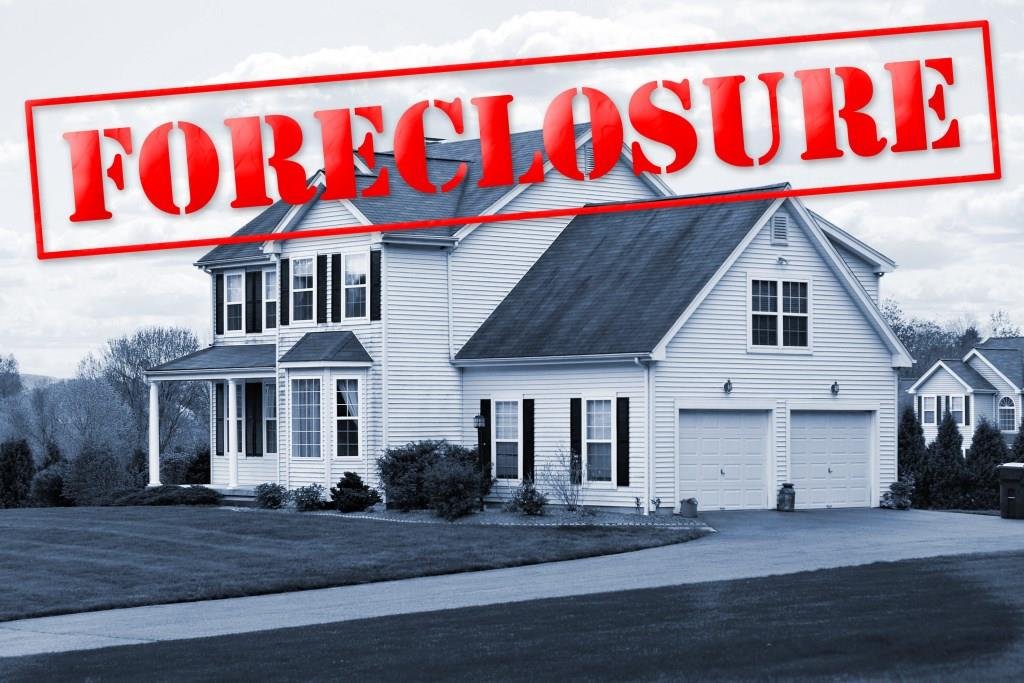When is it Too Late to Stop Foreclosure in Texas
Introduction to When is it Too Late to Stop Foreclosure
This is a common question that many struggling homeowners ask. So if you find yourself in the unfortunate circumstance where your lender has started foreclosure on your home, this article is for you. Our pros will explain the foreclosure process and the many different ways that you can save your home. And most importantly, we answer the question “When is it Too Late to Stop Foreclosure”.
Lenders Do Not Want to Foreclose on Your Home
There are many rumors and half-truths on the internet claiming lenders make money when they foreclose on a home. This is not true. They make money when you make your monthly payments. They don’t want your home, they want you to give them money every month for the next 30 years. Lenders typically lose money when they foreclose on a home – a lot of money. That is why lenders have many options and programs to prevent foreclosure and keep you in your home.
Options to Prevent Foreclosure
Many good hard-working working people are behind in the loan payments or in foreclosure. Whether it is due to a job loss, medical condition, loss of a loved one, divorce, disability, or just plain bad luck, you just need honest answers and a little bit of help. We hope this summary of the different ways you may be able to prevent foreclosure provides some of what you need.
Loan Modification
A loan modification modifies the terms of your original mortgage by lowering the monthly payments and/or extending the number of years to pay the loan off. While the loan modification is being processed the home cannot be foreclosed.
Homeowners need to understand that the loan modification process can be long and tedious. The lender will require extensive documentation showing the reason you need a modification (illness, disability, job change, etc.) as well as your current income, current debt, tax returns, bank statements, and proof that you will be able to make the modified payments going forward.
For many homeowners, the hard work and effort are well worth it as the modification not only prevents foreclosure but can make the home affordable going forward.
Loan Payment Forbearance
A loan payment forbearance agreement can temporarily stop or reduce your monthly mortgage payment. This is a great solution for a homeowner who has experienced a short-term financial setback. This could include a medical issue, job loss, or other hardship. The short-term suspension of your mortgage payments can give you time to resolve your financial challenges.
You will need to discuss with your lender the terms of the forbearance agreement including how many months your payments will be waived or reduced and how the missed payments will be made in the future. Many lenders will add the missed payments to the end of your mortgage. This is known as loan payment extension or deferral.
This is a fairly simple and quick process that not only prevents foreclosure but will help you overcome the financial challenges you are facing.
Deed in Lieu of Foreclosure
A deed in lieu of foreclosure is when you give the home back to the lender and just walk away. On the surface, this appears to be an easy option for a bank to forego the expensive foreclosure process. However, due to legal considerations, lenders rarely approve a deed in lieu unless it is in conjunction with a homeowner’s bankruptcy filing.
But every lender and situation is different, so if this option interests you I would ask your lender if they would consider a deed in lieu of foreclosure. You might just be surprised with a yes.
Refinance Your Existing Loan
If you have decent to fair credit and have only experienced a temporary financial setback, refinancing your loan might be a great option. You might be able to lower your payments, put some cash in your pocket, and get a fresh start. If this interests you, we recommend speaking with your existing lender. Refinancing with your existing lender will immediately stop the foreclosure, streamline the process, and save you thousands in fees.
If your lender is not willing or able to help, then go speak with your local bank or credit union. You can also do an internet search for “second chance home financing loans”. With a little work and perseverance, you should find a lender that is willing to refinance your existing loan.
Sell and Rent Back
A sell and rent back is a unique program that immediately stops foreclosure, allows the seller to get 100% of their home equity in cash, and the family remains living in their home in exchange for monthly rental payments.
The sell and rent back agreement (also called a “Sell and Stay Program”) is an ideal program for a homeowner who is experiencing short-term financial difficulty but wants to remain living in the home they love. Best of all, there are no credit reviews, income, or background checks to qualify for a sale and rent-back agreement.
Do a Short Sale
A short sale is a great option for a homeowner who is experiencing a long-term financial hardship and they owe more to the lender than the home is worth. For a bank, the foreclosure process and cost to maintain a vacant home is very expensive. Plus, when a home is foreclosed the resale value of the house is much lower than a typical home.
You and your lender can avoid the foreclosure altogether by agreeing to do a short sale. Under the terms of a short sale, you agree to live in, maintain, market, and sell the home for the highest possible price. In return, the lender agrees to accept the sales price as a full payoff of the loan. Although there are many nuances to a short sale it can be a win-win for both parties.
Rent the Home
Another option many homeowners rarely consider is renting their home. Typically, when you rent a home you get 1 month’s security deposit and 1 month’s rent. That is 2 monthly mortgage payments that you can use to stop the foreclosure. Yes, you will need to move out and find other housing but you will still own the home and after the lease expires, you have the option to move back in.
For many, this is an excellent option that prevents foreclosure and gives the homeowner the time needed to overcome their financial challenges.
Sell the Home
If none of the above options are feasible, selling your home could be your best option. Many companies will buy your home for cash, close quickly, and will give you a great price. You can get an immediate cash offer in less than 2 minutes by just entering your address. Many homeowners are surprised at how much an investor will pay for their home and how this can put immediate cash in their pocket to help them get new housing.
If you have the time and are willing to put in the effort, hiring a full-service low-fee real estate agent to sell your home can be a good option. A good discount full-service real estate agent will do everything a full-price agent does but for thousands less, putting more money in your pocket.
File Bankruptcy
The final and most drastic solution is to file bankruptcy. This will immediately stop the foreclosure, even at the last minute, but is also extremely damaging to your credit. Also, bankruptcies are a legal method to give a person a fresh start free from burdensome debt, not prevent foreclosure. Unfortunately, it is rarely a long-term solution and will generally only delay the foreclosure for a few months. There are two types of bankruptcy filings, Chapter 7 and Chapter 13.
A Chapter 7 bankruptcy is a liquidation of all debts and assets with certain limitations. With a Chapter 7 filing, you turn over all assets and debts to the court and request to be relieved of all debts and obligations. If you qualify, you walk away broke (you must give your assets to the court) but also completely debt-free. You are also agreeing to the foreclosure of your home in return for being forgiven all debt.
A Chapter 13 bankruptcy is when you request the court to restructure your debt. The court will look at your income, assets, and debts to approve a reasonable repayment plan. In a Chapter 13 bankruptcy, you can keep your home because your past-due mortgage payments can be included in the payment plan. However, you are required to resume your normal monthly mortgage payments. If you miss a payment the bankruptcy can be dismissed and the lender will be allowed to foreclose.

The Foreclosure Process
The process of foreclosing on a home varies from state to state. In this article, we are reviewing the non-judicial foreclosure process in the state of Texas. If you live in another state, the process will be similar but there could be significant differences.
How Does a Home Go Into Foreclosure?
Foreclosure proceedings almost always start because the borrower fails to make the required payments. This not only includes failure to make the monthly mortgage payments but also includes missed payments to the Homeowners association or not paying your real estate taxes. For simplicity, we will limit our discussion to foreclosure that is started because the borrower has not made their monthly mortgage payments.
A lender will not begin the foreclosure process until after a borrower has missed three or more mortgage payments. The foreclosure process begins when the lender sends the homeowner a formal notice of default and demand for payment. Unless payment is made or other arrangements are worked out with the lender (loan modification, loan extension, etc.) the lender will proceed with foreclose preparations.
Pro Tip:
Do not ignore the notices from the lender. Call and speak to them about a loan modification, refinance, or loan extension. The earlier you start the greater your chances are of getting help. Homeowners who delay may find out the hard way: When is it too late to stop foreclosure?
When Does the Actual Foreclosure Begin?
The actual foreclosure begins when the trustee files the notice of foreclosure sale in your local county courthouse. All non-judicial foreclosures in Texas happen on the first Tuesday of the month including holidays. The notice of foreclosure must be posted in the local county courthouse at least 21 days before the scheduled foreclosure sale date.
How Does the Lender Foreclose?
Most large lenders will hire an attorney to act as the mortgage trustee. The attorney will perform the tasks necessary to complete the foreclosure on behalf of the lender. This includes posting the 21-day notice and conducting the actual foreclosure sale.
On the first Tuesday of the month, the attorney will go to the local county courthouse to hold the public foreclosure auction. Although this sounds very official and is legally required, the whole foreclosure auction process only takes about 5 minutes. The public foreclosure auction is usually held on the outside of the courthouse and is open to the public. Anyone can attend and bid at the auction.
To start the foreclosure auction process, the attorney will read a short legal disclosure. Once the disclosure is completed the attorney will usually ask if anyone has legal documents to serve on them which would prevent the foreclosure sale. If no one speaks, the attorney will start the auction by placing the first bid on behalf of the foreclosing lender. If there is an interested bidder they can then place bids. In a matter of minutes, the property will be sold to the highest bidder.
When is it Too Late to Stop Foreclosure?
It is too late to stop the foreclosure when the home is sold at the public foreclosure auction. You can stop a foreclosure at the very last second before the foreclosing attorney/trustee says sold at the public foreclosure auction. This is usually accomplished by selling the home to an investor like OutFactors, paying the lender the past due payments, or filing bankruptcy. Unlike selling the home to OutFactors or paying the past due amount, filing bankruptcy is not a solution, it merely delays the foreclosure.
Pro Tip:
Never wait until the last second. There are many options to prevent foreclosure including a sale with a rent back, selling your home’s equity, short sale, selling to an investor for immediate cash, and various loan modifications. Research your options and choose the best solution for your situation.
Conclusion
There are many foreclosure prevention programs out there to help struggling homeowners. Do the research and you should find a foreclosure prevention option that works for you.
And remember: When is it too late to stop foreclosure? It is only too late when the home is sold at the public foreclosure auction!
When is it Too Late to Stop Foreclosure | OutFactors – Dallas Fort Worth, TX






